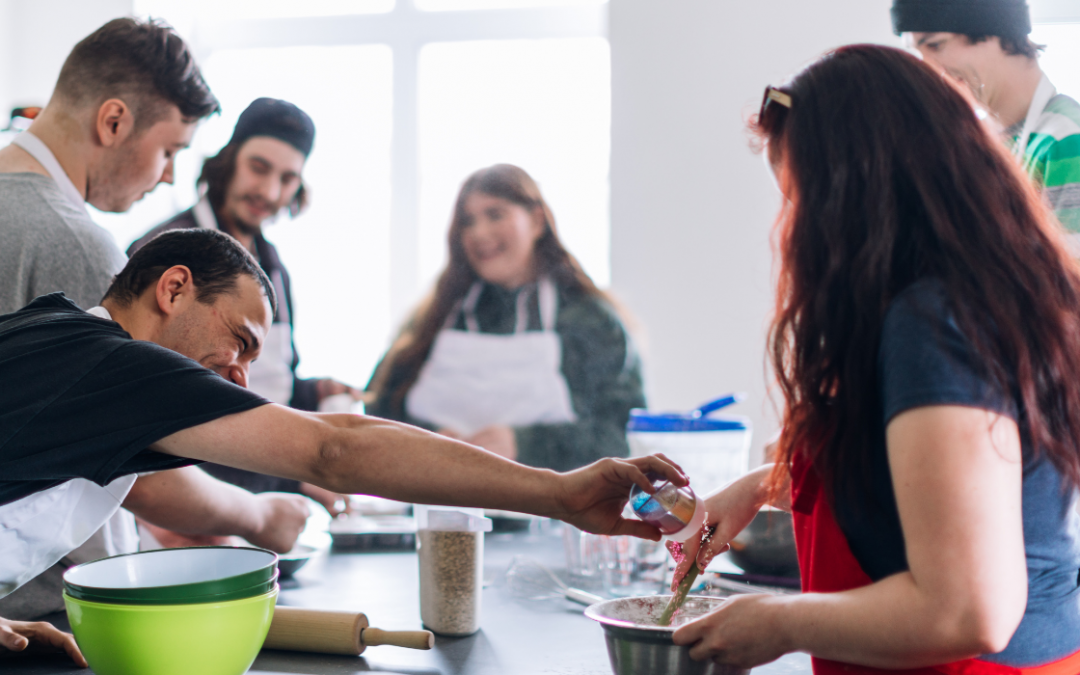Social activities are an essential part of our everyday lives, and it is particularly important for individuals with learning disabilities. Research has shown that participating in social activities provides numerous benefits for individuals with learning disabilities. Here are some reasons why social activities are good for people with learning disabilities.
1. Enhances Communication Skills Social activities are an excellent way to enhance communication skills in individuals with learning disabilities. Social interactions promote language development, improve social communication, and encourage verbal and non-verbal communication. Participating in social activities allows individuals with learning disabilities to practice and improve their communication skills, leading to an increased ability to express themselves and build better relationships.
2. Builds Confidence and Self-esteem Social activities provide an opportunity for individuals with learning disabilities to feel included and valued. When people with learning disabilities join in social activities, they often feel a sense of belonging and acceptance, which increases their self-esteem and confidence. The social interaction also allows individuals to form meaningful connections with others, which can further boost their confidence and self-esteem.
3. Enhances Social Skills Social activities play a vital role in enhancing social skills, such as sharing, taking turns, and making friends. These skills are essential for individuals with learning disabilities because they often struggle to establish social relationships and have difficulty with social cues. Participation in social activities can help individuals learn these social skills in a more natural and fun environment than classroom settings.
4. Boosts Mental Health Research has shown that social isolation and loneliness can have detrimental effects on mental health. Social activities, on the other hand, can positively impact an individual’s mental health. Joining social activities provides opportunities for individuals with learning disabilities to form friendships, feel more connected, and have access to social support. As a result, participating in social activities can reduce stress, depression, and anxiety.
5. Provides Opportunities for Learning Social activities also provide opportunities for individuals with learning disabilities to learn new skills and information. For instance, a social activity such as a cooking class can help an individual learn about healthy eating habits, while an art class can enhance creativity and provide a therapeutic outlet.
In conclusion, social activities play an essential role in building the social, emotional, and mental well-being of individuals with learning disabilities. These activities provide opportunities for communication skills enhancement, confidence and self-esteem boosting, social skills building, mental health boosts, and learning opportunities. If you know someone with a learning disability, encourage them to participate in social activities, as it can be a game-changer for their overall well-being.
What activities can you do?
There are many different social activities that people with learning disabilities can participate in. Here are some examples:
1. Sporting activities – This can include both individual and team sports such as swimming, cycling, basketball, football, tennis, and many more.
2. Arts and Crafts Classes – Art classes provide an opportunity for individuals with learning disabilities to express themselves through painting, drawing, sculpture making and many more. For those who enjoy crafting, sewing or knitting groups might be of interest.
3. Music and Dance Classes – Music and dance classes can help individuals with learning disabilities to improve their physical coordination, express emotions, and have fun.
4. Social Clubs – There are various social groups and clubs that people with learning disabilities can participate in. These groups provide an opportunity to meet others, share experiences, and take part in activities together.
5. Volunteering- Individuals with learning disabilities can volunteer in their community or attend workshops and seminars on various fields. It’s an opportunity to contribute to society and feel valuable.
6. Cooking Classes– Cooking classes are not only an excellent opportunity to learn about healthy eating habits, but it also serves as a social activity for people with learning disabilities. 7. Outdoor activities – These may include hiking, camping, fishing, or gardening, which provide a chance to enjoy nature, learn new skills and meet others.

As you can see there are many benefits to day centre attendance as part of a weekly routine. At Intrust Care we will always support our clients with learning disabilities and/or autism to access these services if they wish to do so. This may be helping them to get ready to go to the day centre, or being there to support them in the daily activities and learning.
We would be more than happy to discuss our learning disability support services further with you.

